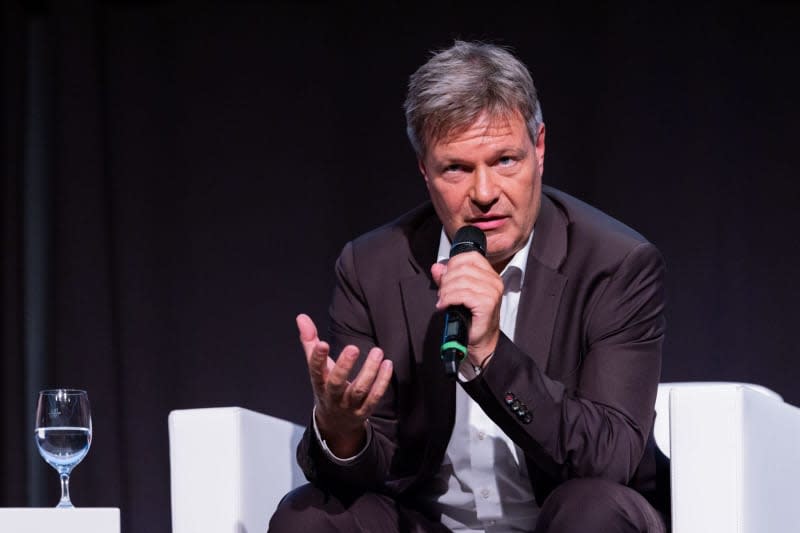German politicians and trade unionists advocated for preserving Germany’s steel industry and converting it to become climate-neutral at a National Steel Summit held in the western city of Duisburg on Monday.
“Green steel made in Germany is our drive,” said Economy Minister Robert Habeck, noting that Germany and the EU are global leaders when it comes to the decarbonization of the steel industry.
“In Germany, we will convert around one-third of German crude steel capacity by 2030 and, in doing so, produce around 12 million tonnes of CO2-free steel,” he said.
German steel production is at the beginning of many important value chains, he added, making it an important driver for key sectors such as automotive and mechanical engineering and their transformation.
But steel, a key industry in Germany, is energy intensive and accounts for around 7% of Germany’s total greenhouse gas emissions.
New technologies and the use of renewable or green energies – including hydrogen – could provide solutions.
The German government is funnelling billions of euros into building the large-scale plants needed for this process.
The German steel industry is also facing further difficulties, from the weak economy to high energy prices and cheap imports mainly from Asia.
In the run-up to the congress, IG Metall called on steel companies to make a “clear commitment to Germany as an industrial location and to invest in domestic sites.”
Politicians must create a reliable environment for investment and work to ensure competitive prices for electricity in the industrial sector, the union argued.
German manufacturing companies say they are being battered by high energy prices and lack of reliable supplies, leading to warnings that they could consider relocating to other countries or curtail operations.
The summit was organized by North Rhine-Westphalia’s (NRW) economy ministry, as of the more than 80,000 employees in the industry, some 25,000 work in NRW, according to the ministry.
With six blast furnaces alone, Duisburg is considered Europe’s largest steel location. “Together we send a strong signal: steel has a future,” said Mona Neubaur, the state’s economy minister.
A competitive domestic steel industry is essential for industrial value chains, prosperity, employment and a green transformation in Germany and Europe, the industry action plan says.
“Steel is of great importance as a material for the German and European industry,” it says. It is now crucial to make rapid and visible progress in the implementation of the measures, the authors write, calling for an immediate programme from the government.
The eleven German states, calling themselves a “steel alliance,” advocate the creation of green lead markets in the action plan, where demand for CO2-reduced steel is promoted through public procurement.
The industry is under considerable pressure, said the president of the Steel Federation, Gunnar Groebler. “To ensure the boiler doesn’t burst, the three biggest screws must now be tightened: establishment of green lead markets, keeping energy prices in check and creating effective protection against unfair competition.”
“Tens of thousands of well-paid, collectively secured jobs depend on the steel industry,” said trade union IG Metall’s deputy chairman, Jürgen Kerner.
As a basic materials industry, the steel sector is also central to the value creation network that makes Germany successful as an industrial location. “This must be preserved and transformed into a CO2-neutral future.”
The companies are expected to clearly commit to Germany as an industrial location and invest in the future of domestic sites, he said.
Some 1,500 employees from 34 steel companies across the country were expected to attend a rally outside the conference on Monday.









